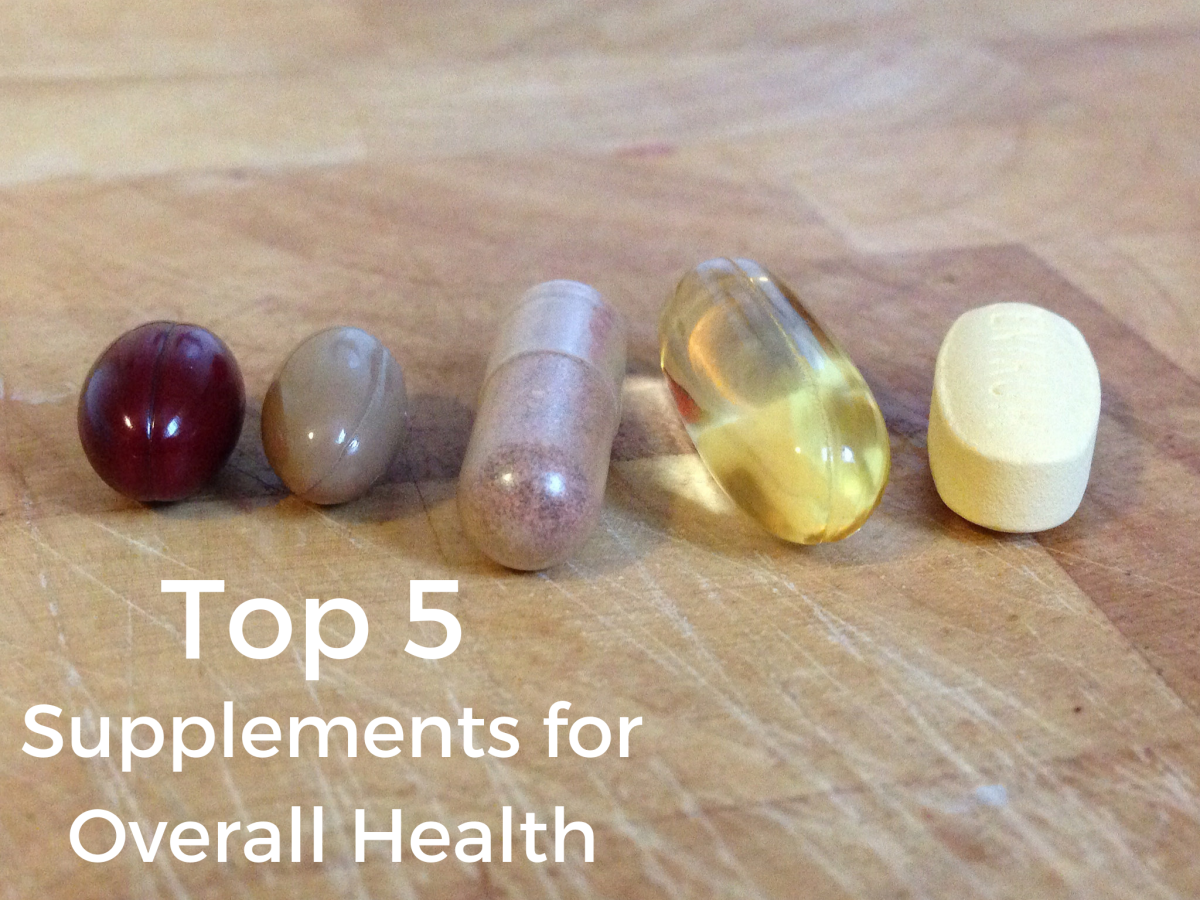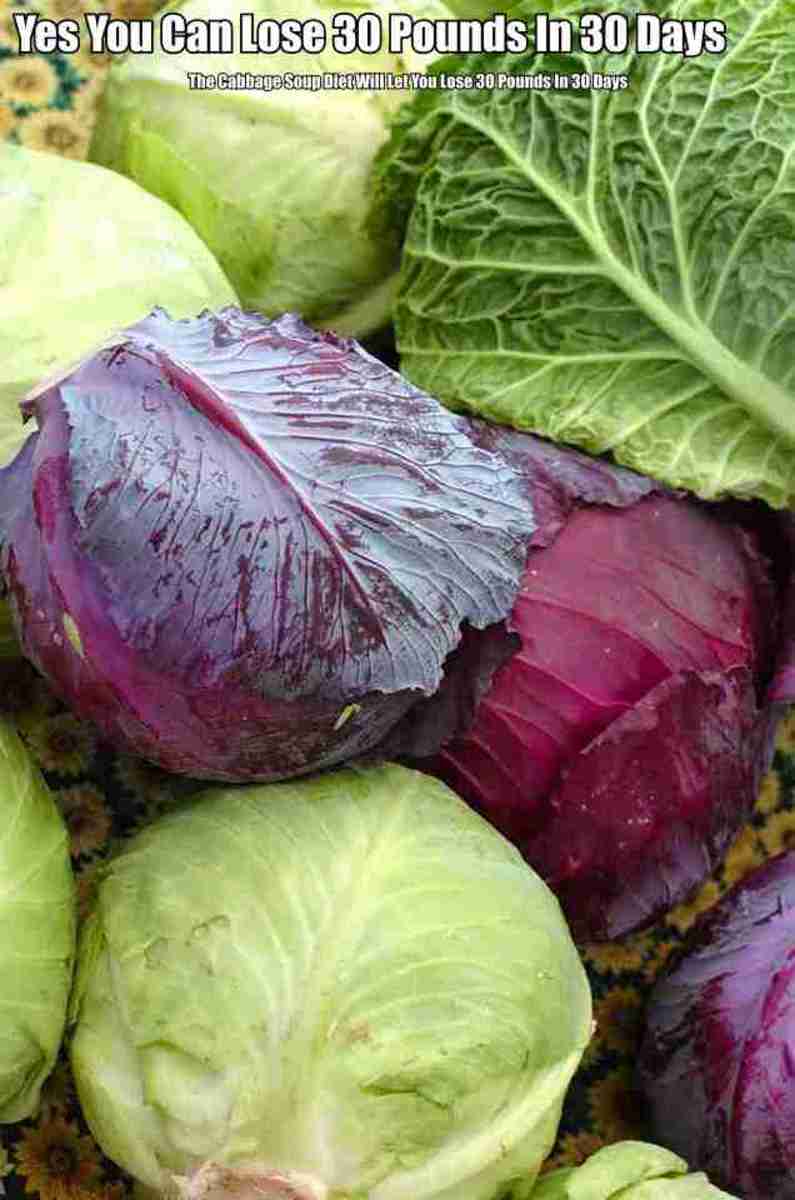The Vegetarian Diet: Are Supplements Needed?

Vegetarian Health Issues
Do vegetarians need dietary supplements? My answer is a resounding... maybe. It's not so much about whether you're vegetarian as whether you get a range of wholesome foods each day. Many people -- vegetarian or otherwise -- get a less than ideal amount of some nutrients. I don't know that vegetarians are more likely to need supplementation, but the particular supplements they need may be different.
An example of this: omega-3 fatty acids. Most western diets are deficient in this essential fatty acid. If a person is not vegetarian, they can prevent an omega 3 deficiency by eating salmon or other fish a few times a week. Many vegetarians would do well to supplement their diet with flax seeds and possibly algae. Another example: iron and B12. While there are many plants that are rich in iron, the careless or 'grab-and-go' vegan could develop a deficiency. Some forms of yeast are good sources of B12.
Of course some people have metabolic conditions which cause them to require -- or at least benefit from -- increased amounts of some nutrients (for example, particular amino acids). Vegetarians and non-vegetarians alike can find themselves in this situation; body chemistry and lifestyle together determine how much supplementation one needs.
Omega 3's - Algae, Anyone?
Omega 3's can be a bit tricky. It's not just about getting enough of them; it's about getting an adequate amount in proportion to those omega 6's that are so abundant in plant oils (and that many of us get too much of). An added layer of complexity: there are different forms of omega 3 fatty acids. Ideally our bodies can convert one into another, but in reality that doesn't always happen.
Flax seeds are a great veggie source of Omega 3s, but some people would do well to take algae-derived EPA/DHA. (I recently got some flaxseed oil enriched with algae-derived DHA -- the flavor is a bit stronger, but as a seaweed fan, I rather like it.)
- Vegetarians and Omega 3's
The low-down, from Woman to Woman

Iron and B12
Duck Eggs, Anybody?
Don't let non-vegetarians fool you into thinking that you can't get an adequate supply of these essential nutrients from a vegetarian diet. It is admittedly easier for a vegetarian than it is for a vegan -- especially if they let some eggs in-- though egg consumption lets in a slew of humanitarian issues.
I was wandering the local farmer's market recently when I came across this sign for locally grown "true free range" duck eggs. They were touting both humane treatment and enhanced nutrition. I Googled duck egg nutrition (What a world we live in!) and sure enough duck eggs are richer in both iron and B12 than chicken eggs. I haven't bought any yet, but they're looking pretty intriguing...
Vegan or vegetarian -- a little foresight should ensure adequate consumption of these nutrients!
When people ask me why I'm eating vegetarian
I say it's better for the planet, the little fuzzy critters... and probably me, too.
Vitamin K2
One that I recently bought myself is vitamin K2. Are vegetarians or omnivores more likely to have more of it? I'm not sure. Vitamin K2, which has more functions than regular, old vitamin K, can be synthesized from vitamin K. People's bodies aren't necessarily adept at doing the synthesizing, though. Vegans may get a lot of vitamin K from green leafy vegetables, but they won't get much in the way of vitamin K2 unless they go out of their way. The greatest quantity of K2 is actually in a vegan product: a fermented soy product called natto. But not all fermented products are high in K2. There are more animal products that contain K2 than there are plant products. But I think that if a person wants a therapeutic dose for a health condition, in most cases, they'll need a supplement -- and whether they're vegan or omni likely won't be the determining factor.
Whole Foods vs Supplements
Generally it's best to get one's nutrition from whole foods. Research shows that the health benefits of nutrients like Vitamin C (a nutrient that's of course found in abundance in fruits and veggies) don't all extend to supplements. Still, supplements can help ensure against out-and-out deficiency. Remember: the supplementation can come from enhanced foods and beverages as well as from those things you find on the vitamin shelf. Breakfast cereals, fortified beverages...
One thing I like about Super C beverages: They come in powdered form, which makes them more environmentally-friendly -- and ultimately more convenient as I can carry them easily and add to either a mug or water bottle. They come in several varieties for different health needs. As I said, whole foods are best -- but my choice of beverages helps ensure I'm not B12 deficient in even the worst of times.
More Web Resources - On Vegan/ Vegetarian Health
- What Every Vegan Should Know About B12
Guidelines for ensuring your vegan diet isn't B12 deficient. - Duck Egg Nutrition
Compare nutritional info on duck and chicken eggs. - Vegan Nutrition Issues
From the Vegetarian Resource Group. - Vegetarian Health Tips
Easy-to follow tips from About.com
For In-Depth Exploration - Of Food Supplements

Vegetarian?
Vegetarian Leanings?
WHY VEG? is a collection of web pages about vegetarianism... and a pretty happening place. You're welcome to make your own page.
Leave your comments here.







